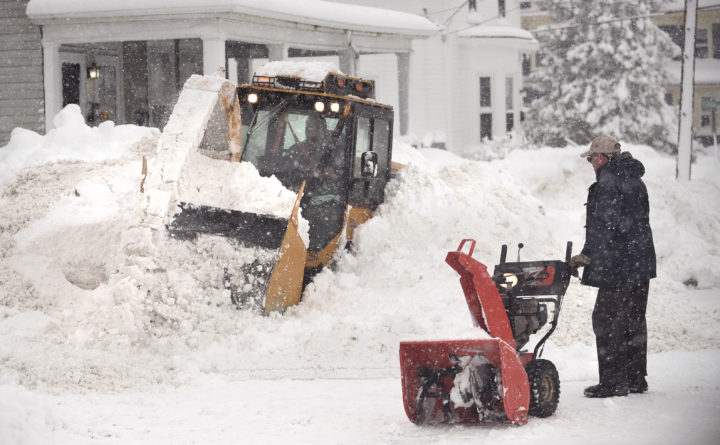After lawsuits, allegations of conspiracy and plenty of conjecture, Maine made history on June 12th, when the state was the first in the nation to implement Ranked Choice Voting (RCV). This relatively simple approach asked voters to show their support in nuanced ways. Instead of one or the other, voters were able to demonstrate that who they thought would be a good runner-up in case their candidate didn't win the first round.
 |
http://editions.lib.umn.edu/electionacademy/
wp-content/uploads/sites/3/2018/06/rankedchoicevoting.jpg |
For the primary election in June, Republicans elected Sean Moody, a businessman whose auto collision repair company converted to an employee stock ownership plan in 2003) by a clear majority. The Democrats, with seven candidates on the ballot, were left with two that totaled 90% of the votes in total. Thus, all the ballots were shipped to the state capital in Augusta for recounting in the Secretary of State's office. The RCV software counted the second choices on candidates and Janet Mills, an attorney, won 54% of the votes.
There was a surprising lack of drama and confusion as the process unfolded on primary day, but plenty beforehand. The Maine Supreme Court ruled that RCV was unconstitutional, largely because the process outlined in the state's constitution requires a plurality, not a majority. Plurality meaning the largest number of votes. In fact, no Governor has won the majority of an election since 1998. Independents are a powerful force in Maine. Thus, Governor Paul LePage was elected twice, first with 37.6% in 2010, and in 2014 with 48.2%.
Governor LePage is not without controversy. In the early months of my repatriation in 2016, he alleged that the vast majority of drug dealers in Maine were Black or Hispanic and that he had a binder of news articles to prove it. Shortly after, he left a voicemail for a democratic state representative and challenged him to a duel. He's called student protestors "idiots" and displayed a "Wanted" style posters for environmental and labor organizations at a town meeting, and alleged that asylum seekers were the source of the "ziki-fly".
With this track record propelling the action, a coalition banded together to develop and introduce the initiative, passed in 2017, to use RCV in Maine. After some challenges, the system was used in the primary election, but will not be used in the gubernatorial race. Mainers voted by a vast majority in the recent June 2018 election, to use the RCV process, and other states are looking to Maine for lessons learned from the implementation.
As the RCV process unfolds, I hope we find our way into elections, processes, and discussions that propel us closer to the center of human opinion. RCV gives people a chance to lean into a general direction instead of a yes or no. Plurality leaves a lot of people feeling disenfranchised. The electoral college system has flaws in the concentration of power within a few, as opposed to recognizing the technological advances and power of the collective individual vote.
For now, our country is desperate for connections that overcome short-sighted political agendas. We are seeking a path that will help us refine our national identity to the fundamental principles of the Constitution, The Bill of Rights, and the Declaration of Independence.
There's a deeper nuance to our conversations about how to share the collective elements of our humanity as people. The grief from the loss of a child, adherence to globally accepted conventions, the desire for quality and affordable health care, acceptance across skin color and national origin, compassion for the hard choices that the financially challenged face-- all of these seem to be fundamental, universal principles of being human. I feel now, as disconnected as we are becoming from politics, that we must act in individual action to the common good.
 I tuned into the Alaska news and remembered my experiences with earthquakes. Feeling the roll build gently under your being, or sitting at my desk on the fifth floor and watching the computer screen rock back and forth. In the seconds of any quake, you wonder if this was going to be a big one. You remember the idea of a go-bag that never manifested. As the shaking subsided, my heart rate returned to normal and the awe of being in touch with nature returned.
I tuned into the Alaska news and remembered my experiences with earthquakes. Feeling the roll build gently under your being, or sitting at my desk on the fifth floor and watching the computer screen rock back and forth. In the seconds of any quake, you wonder if this was going to be a big one. You remember the idea of a go-bag that never manifested. As the shaking subsided, my heart rate returned to normal and the awe of being in touch with nature returned.








































